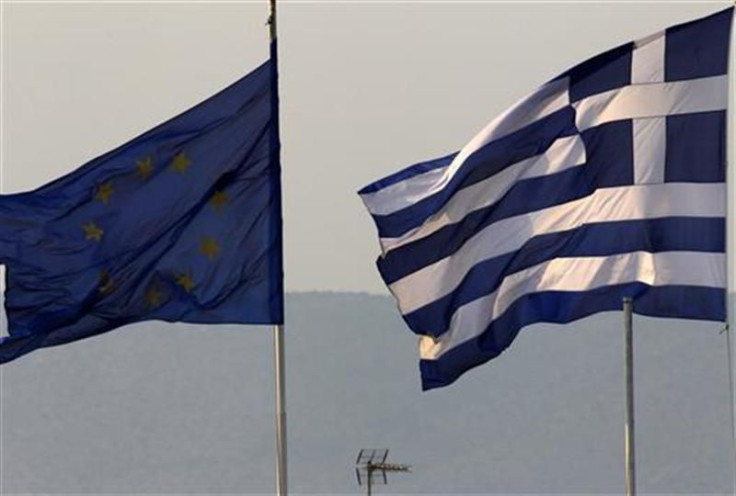In Spite of Antics and Best Efforts, Greece Default Likely: UBS

Greece will likely default on its sovereign debt obligation, putting underwriters of insurance against such an event on the hook for billions of dollars in payments, the chief economist of Swiss banking giant UBS said.
Speaking at a fixed-income conference in New York, Larry Hatheway, the London-based chief economist for UBS, said Tuesday the current discussions amongst bondholders and Eurozone officials -- which would have creditors accept 30 cents on the dollar for their sovereign debt assets -- were "probably not even enough to appropriately reduce Greece's public debt."
Bondholders, represented by industry group Institute for International Finance, have been haggling with European authorities to determine how much they will get paid on their Greek sovereign notes. While preliminary agreements to take a 50 percent "haircut" were made in October, over the weekend, European authorities pushed for a more punitive scenario that would leave them with a discount on their bonds closer to 70 percent. The bondholders, and the Eurozone finance ministers that must approve any decision, are currently at an impasse.
"Discussions with Greece and the official sector are paused for reflection," a spokesman for the Institute of International Finance said Friday, according to Reuters.
At a conference organized by capital market research firm TABB Group, Hatheway noted the bondholders "will probably have to acquiesce even if they're balking at the moment." But he suggested that might all be in vain. He pointed to the fact that less than two months from now, on March 20, the Hellenic Republic has a €14.5 billion debt payment due and "Greece does not have the money for that debt."
If Greece were to default, it could trigger the payment on thousands of credit default swap agreements, derivative contracts privately agreed to between financial institutions to protect themselves against the risk of sovereign debt repayment failure.The International Swaps and Derivatives Association, a private organization, would make the official proclamation as to whether actions by the Greek government constitute a default, triggering the CDS obligations.
No one knows exactly who would owe how much, and some market participants fear at least some financial institutions, having underwritten the insurance, will not be able to come up with the promised payments. The Depository Trust and Clearing Corporation, which serves as a clearinghouse for some financial derivatives, says the total value of CDS agreements written to insure against a Greek default is some $68.2 billion. It estimates that, were a default to occur, some $3.2 billion would change hands.
Previous "haircut" discussions with bondholders, including the preliminary agreement in October, have been done in such a way as to specifically prevent triggering CDS obligations. And many in international finance are still looking for a "voluntary" swap solution that does not end up triggering payment on these derivatives.
Tuesday, for example, IMF Managing Director Christine Lagarde said on French TV that a Greek default "would not be 'envisageable,'" according to the Wall Street Journal.
Charles Dallara, a managing director at the IIF, also seemed optimistic on the prospect of a bondholders receiving a voluntary cut.
"I'm actually quite confident that if we can reach a voluntary accord that we can mobilize a very high participation," Dallara said on CNBC Tuesday.
But Hatheway sees no other way.
"If it is done in a way that forces a re-structuring in an involuntary manner," he told the New York conference Tuesday, speaking of a Greek default "it will cause risk premiums to rise" for other countries like Italy and Spain.
Hatheway is not the only significant market voice to have stated Tuesday a Greek default was on the way.
Earlier in the day, Standard & Poor's managing director for sovereign ratings, John Chambers, told a different New York conference that "in all likelihood, the very least that would happen in Greece is an exchange that would qualify by our criteria as a default," according to Bloomberg.
Another participant in the same event as Hatheway, Robert Burke of Bank of America, had told the audience his clients were expecting to be paid on CDS obligations in case of a Greek default.
"I don't get a sense of panic", Burke, head of OTC clearing for the Charlotte, North Carolina-based bank told a panel on credit markets. "There's only so much you can move around before triggering credit event definitions."
© Copyright IBTimes 2025. All rights reserved.




















